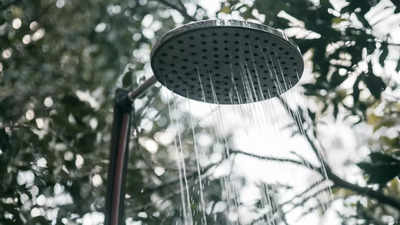There has been discussion and interest in the theory that skipping winter baths may extend life. Although it may seem strange, some research points to an interesting relationship between longevity, metabolism, and cold exposure. But can you live a longer life by avoiding your usual winter bath? Here’s what science has to say about this.
Does temperature really influence longevity?
Temperature has been shown in studies to affect the lifespans of many different species. Cold temperatures in humans and invertebrates may reduce metabolic activity, hence lowering DNA damage and oxidative stress. These effects, which are associated with ageing, indicate that controlled exposure to cold could potentially lengthen life.
A 2018 study found that mice with lower body temperatures survived up to 20% longer. Although the study did not specifically examine human behaviour, such as bathing, it did add to a better understanding of how cold exposure affects physiological responses that influence longevity and ageing.

(Pic courtesy: Pexels)
Role of metabolism in cold environments
In colder weather, the human body preserves energy and slows its metabolism. This change decreases the generation of free radicals, which are damaging chemicals associated with ageing and cellular damage. By reducing oxidative stress, the body may age more slowly, giving weight to the hypothesis that chilly surroundings may extend life.
However, avoiding baths is not directly related to these benefits. The theory is most likely based on the finding that cold exposure, when appropriately controlled, can increase longevity. Cold showers, for example, are frequently advised for their benefits to circulation and mental health, but they are not a substitute for proper hygiene.
Impact of hygiene on health
While the cold may have certain benefits, appropriate cleanliness is very much essential for general health. Long durations of not taking a bath can result in bacteria buildup, an increased risk of skin infections, and a reduced immunity.
Thus, while temperature regulation influences ageing, disregarding hygiene may negate any possible benefits of cold exposure.
Cold temperatures activate neuroendocrine mechanisms in the body. These pathways, which involve hormones such as norepinephrine, improve stress response and may contribute to longevity. According to a 2022 study regulated cold exposure can boost immunity against aging-related diseases like cardiovascular disease and neurological disorders.
A study suggests that planned and controlled cold exposure, rather than missing hygiene procedures, may be a safer way to achieve longevity benefits.
What does this mean for daily winter baths?
The claim that skipping baths in winter could increase your lifespan by 34% lacks direct scientific support. The link between cold exposure and longevity exists, but hygiene will always remain an important aspect of health. Instead of avoiding baths, consider taking cold showers or spending short periods of time in cold places.


